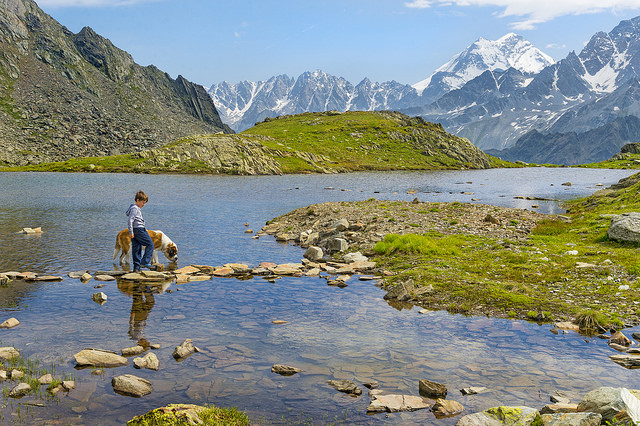“If you wanted to create an education environment that was directly opposed to what the brain was good at doing, you probably would create something like a classroom.”
– John J. Medina, Author of the New York Times Bestseller, Brain Rules
Up North in Vermont, Fin (12) and Rye (9) wake up before dawn. After completing some necessary chores they set out on their 43 acre farm with their fishing poles or fixed blade knives.
They spend their days hunting for wild mushrooms and berries, discovering moose tracks, building natural shelters and carving toys out of wood.
Down in sunny Florida, Isaac (13) continues to pursue his dream of being a 3D animator.
He hones his problem solving and creative thinking skills by playing video games such as Kerbal Space Program (orbital mechanics), Spore (evolution) and java scripting mods for Minecraft.
He’s dabbled in coding and once spent a whole day researching and learning about invertebrates.
While he spends a good portion of his day creating and exploring things on the computer, Isaac also enjoys constructing with legos, swimming and riding his bike. He’s taken both nature and java scripting classes.
What do these boys have in common?
They’ve never waited for the big yellow bus to pick them up at the corner. They’ve never sat in a classroom with 25 of their peers, tapping their pencil on their desks while a teacher stands and demonstrates long division.
Over 2 millions students in the US are homeschooled and it’s estimated that about 1/3 of those children are unschoolers – growing at a rate of 10 – 15% per year.
I knew of homeschooling growing up but I wasn’t introduced to the idea of unschooling until working on my Master’s in Early Childhood Education.
While homeschoolers usually follow a structured curriculum similar to schools, unschooling students have autonomy over their own learning.
Learning is self-directed by the student’s individual interests. Adults provide guidance and the ability to facilitate relevant and meaningful experiences.
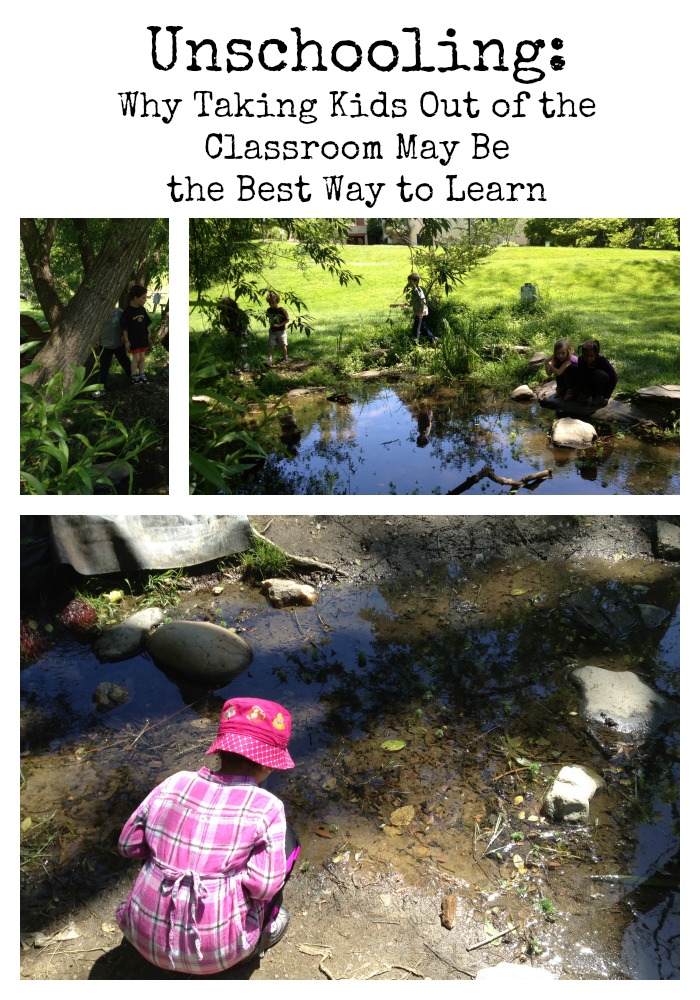
What better way to prepare kids for the real world than actually spending time in it?
Learning takes place out of the classroom and even beyond the home through play, nature, travel, museums, online resources, meeting experts in the field and internships.
It may sound quite drastic, but we know from research that children learn best when they
- are intrinsically motivated
- pursue topics of personal interest
- can go into depth on one subject
- personally experience things (vs. read or hear them)
Why do people choose unschooling?
Advocates of unschooling argue that constant testing causes unnecessary anxiety and takes away kids’ natural desire to learn. This causes kids to focus only on figuring out ways to get the right answer or please the teacher.
They believe children shouldn’t be forced to reach certain benchmarks just because they are in a certain grade since children achieve milestones at different ages.
Learning how to learn is more important than memorizing facts and studying traditional subjects.
Some parents just want their kids to be free or have a greater connection to their family by spending more time together. Others feel unschooling is more of a parenting style than an educational philosophy.
We morphed into unschooling as a natural extension of attachment parenting. – Kelly, Denver CO
Jen of Coral Springs, FL found that traditional schooling methods just did not work with her oldest son.
Trying to force him to do formal “lessons” made us both miserable and sad, so I made a conscious decision to be respectful of him as a person and to trust that he would seek out the things he needs to learn in due time. He’s a natural unschooler.
Jen’s younger son started 3rd grade this year at a STEM charter school – and loves it – but she continues to worry about all the testing that’s going on.
Criticisms of Unschooling
I wondered if unschoolers faced a lot of criticism, but it turns out most people don’t even understand what unschooling is and just don’t know how to respond. They see it as homeschooling and have their own thoughts about that.
I can just picture my husband’s Italian grandmother right now if we announced we were unschooling…
“You know Meaghan and Jason don’t send their kids to school? But they don’t ‘teach’ them subjects – how are they learning anything? The kids are a little weird, don’t you think? I mean they don’t hang out with other children.”
Despite this dramatization – no matter how we choose to educate our kids I will stand by it strongly – I do have my own questions about unschooling.
Do parents possess enough knowledge to teach their kids everything?
While I LOVE math – it infuriates me when teachers use their dislike for math as a reason for choosing to be a Kindergarten teacher but that’s for another day – I’d really have to relearn trigonometry to help my daughter explore sine and cosine curves.
Should she be forced to learn some basic things? Maybe trig isn’t relevant? Maybe at this point you reach out to people in the community who are experts if her passion is beyond your knowledge?
What about students with learning disabilities such as dyslexia?
Reading does not just happen for these folks. Will these kids struggle without the intense intervention that’s necessary for them to learn to read?
Will they flourish in self-confidence because they don’t feel like a failure at a mere 5 years old for not being able to read Hop on Pop like the rest of their classmates?
Do kids on the spectrum get enough socialization?
Won’t some children just avoid the situations that they need to help improve social skills if they’re just at home? Or do they finally feel relieved to not be forced to constantly interact with others and be placed in an overstimulating, stressful environment?
While I thrive in many social situations and crave outside contact, I know when I need to retreat and recharge my batteries. Kids don’t often have this opportunity in school as classrooms place a heavy emphasis on extroversion.
As an educator I struggle with these topics. I love the philosophy behind unschooling but I recognize it is not an easy job – it places a lot of responsibility on the parent and requires a lot of trust in your kids.
How will they make friends? Learn important social skills?
Making sure children have enough peer social interaction is a lot harder when they’re not thrown into a classroom of kids every day.
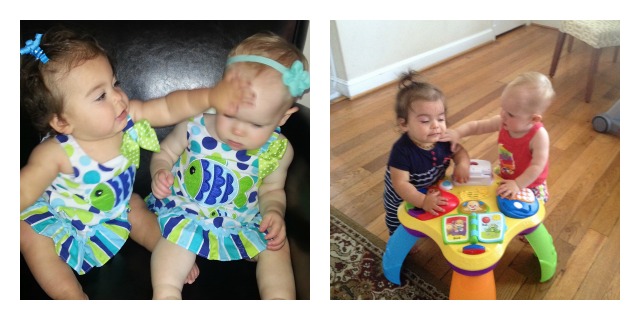
My toddler goes to daycare three mornings a week. While I’d rather she be traipsing through the woods and collecting rocks with her little friends than being confined to classroom, I highly value the socialization she’s getting there.
It’s an important piece of her development that I don’t think would be as adequately filled if she were home all day everyday with me. Not to mention, I also enjoy the little bit of time to myself – it’s hard to write with the little ankle biter around!
However, while parents admit that it’s not always easy, today there are plenty of ways for kids to socialize with peers outside of a traditional school setting.
These include community sports teams, local classes (art, nature, etc.) and museum programs for homeschooling/unschooling kids. In addition, there are tons of networks through Meetup and Facebook to get unschooling families together.
Are unschoolers prepared for college?
The most common criticism people have against unschooling is that children may not be covering the same material as their peers. They don’t take standardized tests and there aren’t concrete ways to measure what they know.
Are they going to be prepared for the SATs? (will that be relevant in 5 years?) For college?
Unschoolers don’t worry about this as they don’t see value in following a traditional curriculum – testing and benchmarks are contrary to their educational philosophy.
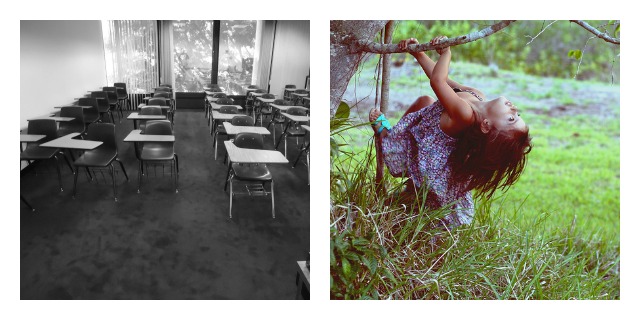 John Holt, considered the “father” of unschooling, believed that
John Holt, considered the “father” of unschooling, believed that
children who were provided with a rich and stimulating learning environment would learn what they are ready to learn, when they are ready to learn it.
For some, as long as children are pursuing their passion, college might not even be the goal.
Jen, mother to a 13 year old unschooler, is not sure if her son will attend college but the option is definitely open to him if he wants it. She doesn’t see unschooling as road block to attending college and believes it also may be an advantage:
Plenty of unschoolers have attended colleges and often do quite well since they haven’t had to spend their entire lives learning how to take standardized tests and instead have focused on learning the things that they are interested in; learning how to learn.
We may need to rethink what we are preparing kids for and challenge our notions of what their future may actually look like.
“If you’re not prepared to be wrong, you’ll never come up with anything original.” – Ken Robinson
Unfortunately today our schools are killing creativity as Sir Ken Robinson would say.
Our school system is still preparing kids to be successful workers in the Industrial Revolution instead of preparing them to be the creative, independently motivated and collaborative thinkers that we need in our evolving economy today.
The world is changing so fast we have no idea what the future will look like in 5 years, yet we need to prepare Kindergartners to be successful in an economy 16 years from now.
We are placing a HUGE emphasis on math and literacy and throwing to the wayside the arts (visual arts, drama, music, dance), PE and recess.
An amazing amount of content is being forced on children to pass standardized tests so schools don’t lose their funding. The result is that children lose interest in thinking on their own and coming up with novel solutions.
From early on we place them in an environment where risk taking and creative thinking should be avoided because the costs of mistakes are high.
Is unschooling the answer?
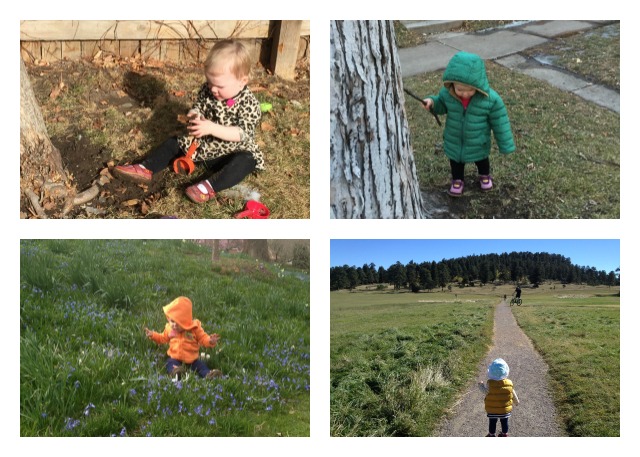 As a teacher, I still believe in the importance of free public education for all. For a large portion of families (parents who both work full time and single parent households) unschooling is not even an option.
As a teacher, I still believe in the importance of free public education for all. For a large portion of families (parents who both work full time and single parent households) unschooling is not even an option.
I think it’s our duty as a society to provide the best education for our nation’s children. But it does seem that some things need to change if we are to keep up with our rapidly changing economy.
I don’t know what the answer is, but I think there are lots of lessons we can can learn from unschooling. I would love to see my daughter Reagan passionately applying geometry to create her own natural shelter with her fixed-blade knife.
No matter what type of schooling our children experience, that focus, determination and love of learning is something we all want to see as parents and educators. We all just want them to be happy and successful – how they get there could take many different forms.
I am both excited and nervous about the future of education. While the American school system in general seems to be focusing on the wrong things, the awesome research that is occurring in the fields of education, creativity, science and technology are inspiring.
Would you, do you, unschool your kids?
What have you done at home or in your classroom to keep children curious, creative, intrinsically motivated and in charge of their own learning?
